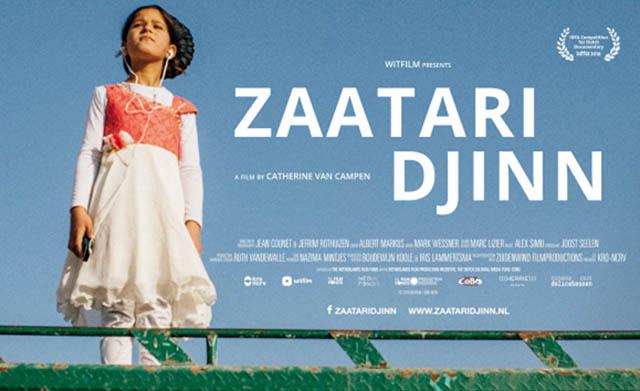You are here
Local filmmaker protests ‘ban’ as commission denies receiving screening request
By Dana Al Emam - Feb 21,2017 - Last updated at Feb 22,2017

A still from ‘Blessed Benefit’ (Photo courtesy of Jo Image/Twenty Twenty Vision/Habbekrats)
AMMAN — The crew of the Jordanian film “Blessed Benefit” on Tuesday protested a reported ban by the authorities on screening the feature in local theatres, as an official at the Media Commission denied receiving an official screening request.
The black comedy, written and directed by Mahmoud Al Massad, tells the story of Ahmad, a construction worker who gets involved in an unfortunate business deal that leads him to prison, according to the film’s official Facebook page.
In prison, Ahmad meets fraudster Ibrahim, who destroys his last hope to prove his innocence. Ahmad is awakened by the realisation that life behind bars might be better than the one on the outside.
Speaking to The Jordan Times on Tuesday, Massad said he went to the Media Commission last week to file a screening request, only to find that a ban has already been issued for seven reasons, including the depiction of a judge and a policeman.
He explained that the film criticises corruption, the ills present in bureaucracy and their influence on the lives of the average citizen, adding that the reason behind the ban was given as attempting to “undermine the state’s authority”.
An informed source at the Media Commission, who preferred to remain unnamed, said the commission did not receive any official screening request for the film, so “there is no ban decision”.
The source added that filming permits are issued by the commission, in cooperation with the Royal Film Commission (RFC).
Massad said the Media Commission has refused to give him a copy of the decision, and has denied issuing a ban and seeing the film in the first place.
He said the decision included cutting three scenes that were deemed inappropriate, a matter that the director refuses, as the three scenes are “essential to character development and to the overall theme of the film”.
The film, which involved over 150 crew members, most of whom are Jordanians, has received the RFC’s shooting approval and financial support that covered 5 per cent of the overall cost, which nearly reached $1 million, according to Massad, who criticised a “lack of coordination” between the Media Commission and the RFC.
For his part, RFC Managing Director George David told The Jordan Times in an e-mailed statement that the commission is not involved in the commercial distribution of films and is therefore not aware of the criteria that the Media Commission follows in this matter.
“It is our role to support audiovisual production in Jordan and encourage its development. Part of these efforts is to give the Jordanian audience the opportunity to watch Jordanian films,” he added.
The film’s local premiere took place on February 6 at Prime Cinemas in Abdali Mall, and was attended by HRH Princess Rym Ali, the RFC executive commissioner, and HRH Princess Wijdan Al Hashemi.
“I worked on the movie wholeheartedly and I did not offend anyone… the film depicts a reality of what a public servant could do to feed his children in time of need,” Massad told The Jordan Times.
Dima Hamdallah, one of the film’s producers, said bureaucratic difficulties facing Jordanian film crews, such as official shooting approvals in some public entities, hinder the progress of local film production.
She added that shooting started in June 2014 and lasted for 35 days.
The film won best Asian film and best actor award at the Warsaw Film Festival, the Abu Dhabi Commission’s Shasha script award, ARTE award for best pitch at Dubai International Film Festival and best script award at the Global Film Initiative.
Social media users protested the alleged ban.
Osama Zu’bi said the film told a real story and depicted reality accurately.
“I told all my friends and acquaintances to go watch the film, and now it is banned,” he posted on Facebook.
Amal Faouri expressed “disappointment” over the “rejection” Jordanian filmmakers face.
Related Articles
AMMAN — Jordan this year continues to be a presence at the prestigious Dubai International Film Festival (DIFF), with seven films co-produce
AMMAN — The short film “Tala’Vision”, written and directed by Jordanian filmmaker Murad Abu Eisheh, has been shortlisted to the Live Action
AMMAN — The “shocking numbers” of displaced people throughout the world prompted the Royal Film Commission - Jordan (RFC) to screen the docu















